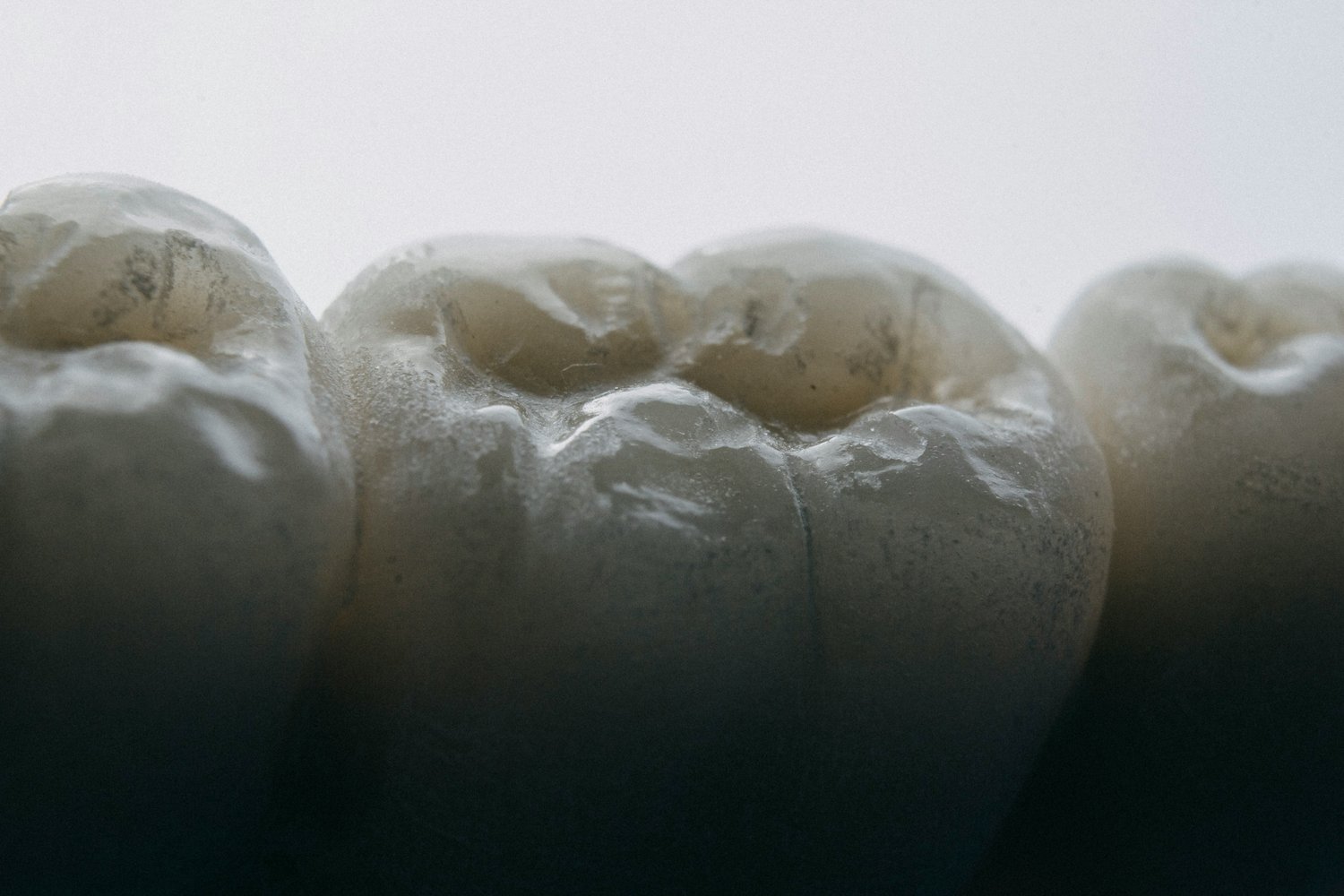https://unsplash.com/photos/a-pile-of-potatoes-LfbjQ7lF_QA
Tooth loss is often seen as a cosmetic issue or a common sign of aging, but its effects can go far beyond appearance. Recent studies have shown that losing teeth can have a profound impact on brain function, particularly memory. The connection between oral health and cognitive abilities is more significant than many realize. Tooth loss has been linked to a decline in memory, cognitive performance, and even the onset of conditions like dementia. In this article, we will explore the intricate relationship between tooth loss and memory, examining how the physiology of memory is impacted by dental health. Additionally, we’ll discuss how various factors, including the brain’s response to the loss of teeth, contribute to memory decline. Furthermore, we’ll also explore techniques like the aboriginal memory technique and the role of seeking dental care from professionals like those at Dentist Bird Road Miami to prevent or mitigate memory issues related to tooth loss.
The Hidden Connection Between Oral Health and Memory
It is surprising to many that the health of your teeth can directly affect the brain. Our oral health is intricately linked to the function of the brain, specifically cognitive abilities and memory. Several mechanisms may explain why tooth loss and cognitive decline are often seen together. The loss of teeth can lead to difficulty chewing, which reduces blood flow to the brain. This lack of stimulation to the brain through the act of chewing can impair cognitive functions. Furthermore, tooth loss can contribute to a reduction in social engagement, leading to isolation and decreased mental stimulation, which are essential for maintaining memory and brain health.
How the Physiology of Memory Is Affected by Tooth Loss
Memory and cognitive functions are influenced by various physiological processes, including neural activity, blood flow, and overall brain health. Tooth loss has been shown to have a direct impact on these processes. The physiology of memory depends on proper neural connections and regular brain stimulation. When teeth are lost, chewing becomes more challenging, leading to decreased sensory input to the brain. This reduction in sensory input can result in fewer signals being sent to the brain, weakening cognitive functions over time. Furthermore, research has shown that a lack of proper chewing stimulation can lead to reduced blood flow to the brain, which is essential for cognitive functions such as memory retention.
Impact of Tooth Loss on Brain Structure
Tooth loss doesn’t just impact memory function in a superficial way; it can actually alter the structure of the brain. When teeth are lost, the jawbone undergoes resorption, a process in which the bone deteriorates because it no longer has the stimulation provided by the teeth. This resorption can lead to changes in the brain’s structure, particularly in the regions responsible for memory and cognition. This is because the loss of teeth disrupts the sensory feedback system that helps the brain maintain its structural integrity. Over time, this disruption can lead to atrophy in the brain, particularly in areas like the hippocampus, which is essential for memory and learning.
The Role of Social Isolation in Memory Decline
One often overlooked effect of tooth loss is its contribution to social isolation, which can significantly affect memory. Individuals with missing teeth may feel self-conscious about their appearance, leading them to avoid social situations. This isolation can result in decreased mental stimulation, which is critical for maintaining cognitive function. Social interaction and engagement have been shown to promote brain health, particularly in the areas responsible for memory. People who experience tooth loss are at a higher risk of withdrawing from social activities, leading to a lack of stimulation and, consequently, a decline in cognitive abilities.
Cognitive Decline and Dementia: The Tooth Loss Link
Cognitive decline, including conditions like dementia, has been linked to tooth loss. Studies have suggested that individuals with missing teeth are at a higher risk of developing dementia as they age. This connection can be attributed to several factors, including the decline in oral health leading to infections and inflammation, which may affect brain function. Additionally, the loss of teeth can disrupt the ability to chew properly, reducing blood flow to the brain and leading to cognitive deterioration. The more teeth a person loses, the greater the risk of developing conditions that affect memory and cognitive abilities. Therefore, maintaining oral health can be a key preventive measure in reducing the risk of dementia.
How the Aboriginal Memory Technique Can Help Prevent Cognitive Decline
While maintaining oral health is essential in preventing cognitive decline, there are other methods to enhance memory retention, such as the aboriginal memory technique. This technique involves using visual imagery, storytelling, and association to improve recall and cognitive function. By engaging multiple senses in the process of memory retrieval, this method can provide an effective way to strengthen memory, especially for those at risk of cognitive decline. While it cannot replace the need for good oral health, incorporating memory-enhancing techniques can help mitigate the effects of tooth loss on memory, providing an additional layer of defense against cognitive decline.
Seeking Professional Help: The Role of a Dentist in Cognitive Health
Tooth loss can be prevented, and its effects on memory mitigated, with proper dental care. Visiting a dentist regularly, such as the experienced professionals at Dentist Bird Road Miami, can ensure that any dental issues are addressed before they lead to tooth loss. A dentist can help prevent tooth decay, cavities, and gum disease that may result in tooth loss. Additionally, they can offer solutions like dentures or implants, which not only restore the functionality of the mouth but also help maintain cognitive function by encouraging proper chewing and stimulating the brain. A dentist’s role is not just about maintaining oral health but also about supporting overall cognitive health.
The Psychological Effects of Tooth Loss on Memory
In addition to the physical and cognitive consequences, tooth loss can have psychological effects that contribute to memory decline. The loss of teeth can significantly affect an individual’s self-esteem and confidence. These emotional changes can lead to depression, anxiety, and stress, which are known to affect brain function. Chronic stress, in particular, has been linked to cognitive impairment and memory issues. The emotional toll of tooth loss can reduce an individual’s ability to focus, recall information, and retain new memories. Addressing these psychological impacts through therapy and social support can be an essential part of managing the memory-related effects of tooth loss.
Preventing Memory Decline by Maintaining Oral Health
Maintaining good oral health is one of the most effective ways to prevent the cognitive decline associated with tooth loss. Regular brushing, flossing, and dental checkups can significantly reduce the risk of tooth loss due to decay or gum disease. Furthermore, a healthy diet that supports oral and brain health can help protect both your teeth and memory. Foods rich in antioxidants, omega-3 fatty acids, and vitamins can support brain function, while also promoting healthy gums and teeth. Staying proactive about oral health can help maintain both physical and mental well-being, reducing the risk of memory-related issues caused by tooth loss.
Conclusion: The Critical Link Between Oral Health and Memory
The link between tooth loss and memory decline is more significant than many people realize. Tooth loss doesn’t just affect the appearance of your smile but can also contribute to cognitive decline, including memory issues. The physiology of memory can be disrupted by the lack of stimulation from chewing, which affects brain activity and blood flow. Additionally, the psychological impact of tooth loss and the resulting social isolation can exacerbate memory decline. To protect your memory, it’s essential to maintain good oral health, seek professional care, and consider methods like the aboriginal memory technique to enhance cognitive function. With proper care and attention, both your teeth and your brain can stay healthy, helping you retain your memory for years to come.



